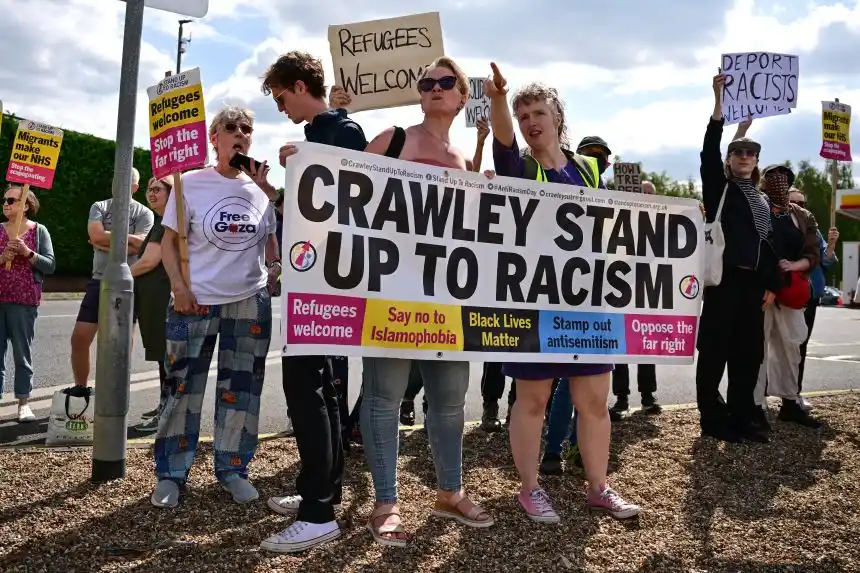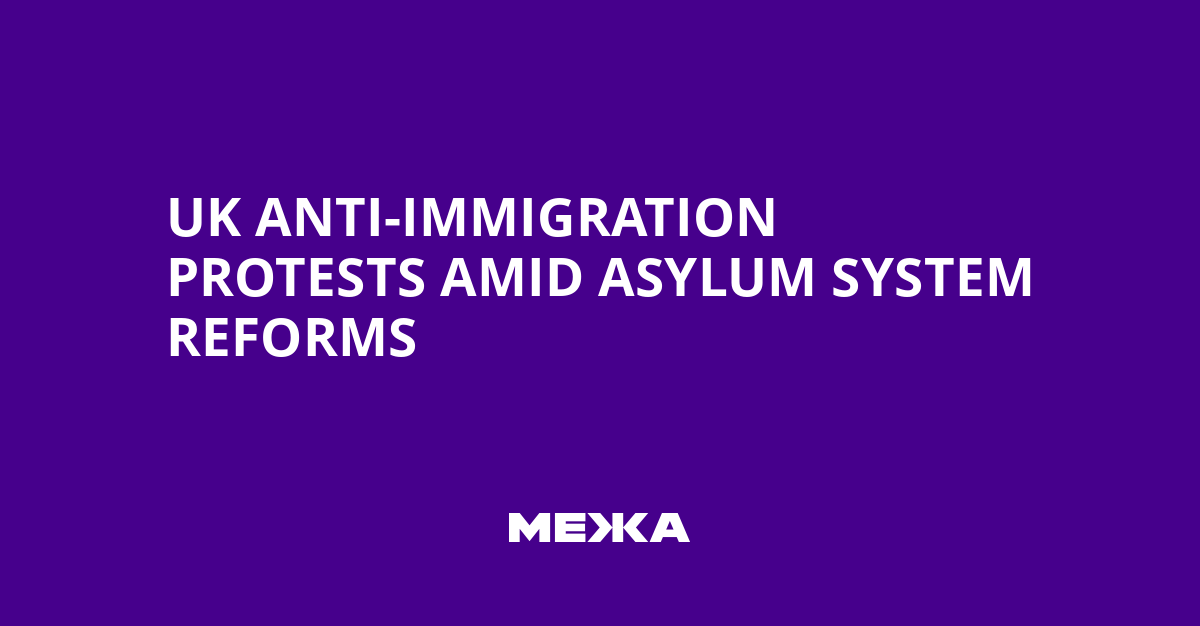
Demonstrators bear a banner that reads ‘Crawley Stand up to racism’ while opposing an anti-immigration demonstration outside the Sheraton Four Points hotel, thought to house asylum seekers, in Horley, south of London, on August 23. Photograph by Ben Stansall/AFP/Getty Images
As reported by CNN
In the United Kingdom, anti-immigration protests continued on Sunday near hotels where asylum seekers are housed, as police were forced to separate demonstrators and counter-protesters in several cities amid tensions over immigration policy.
When immigration is at the top of public opinion polls, the Labour-led government, under pressure, vows to end the use of hotels to house migrants, a practice that costs billions of pounds a year.
On Sunday demonstrations took place across the country – in Epping, Bristol and Birmingham; a court ruling on Tuesday obliged the eviction of asylum seekers from a hotel in Epping, which became the epicenter of the protests; the government plans to appeal the decision.
According to official figures, the number of asylum applications has reached a record high, and more migrants are being housed in hotels compared with last year; the government announced a reform of the asylum appeals process: creating an independent body to hear appeals and reducing the backlog, which stands at around 106,000 cases, with 51,000 appeals and an average wait of over a year.
Home Secretary Yvette Cooper said the changes are part of efforts to “restore control and order” in a system she described as “in complete chaos” at the start of last year when Labour came to power.
“We can no longer tolerate such utterly unacceptable delays.”
– Home Secretary Yvette Cooper
Aims of the reforms and public reaction
It is expected that the new independent system for reviewing appeals will allow asylum cases to be decided more quickly and transparently, reduce backlogs, ease the burden on the budget and improve conditions for those seeking asylum. At the same time, supporters of a tougher immigration policy say the measures are insufficient and emphasize the need for further steps.
The protests continue to reflect public resonance around the issue of asylum, the placement of migrants in hotels, and trust in the immigration decision-making system. The rights and duties of the state in this regard remain the subject of sharp political debate.
